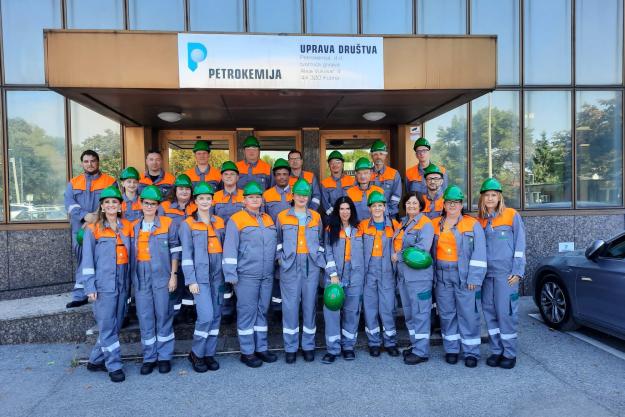
THE HAGUE, Netherlands—15 September 2022—The Organisation for the Prohibition of Chemical Weapons (OPCW) organised a three-day chemical safety and security management seminar in cooperation with Croatia’s National Authority for the Implementation of the Chemical Weapons Convention (CWC) and the University of Zagreb’s Faculty of Science for Eastern European OPCW Member States. The course was held in Zagreb, Croatia from 6 to 8 September.
The seminar promoted safety and security standards for chemical facilities and laboratories to minimise the risk of safety incidents. Participants reviewed critical resources, tools, and training needed to raise chemical safety measures and secure industry facilities. As part of the programme, participants visited the Petrokemija chemical industry plant, a Croatian chemical facility specialised in manufacturing agricultural fertilisers to learn about the safety and chemical security management protocols in the production of fertilisers using CWC-scheduled chemicals.
In her opening remarks, Ms Nataša Mikuš Žigman, State Secretary of the Ministry of Economy and Sustainable Development of the Republic of Croatia, underlined the importance of enhancing engagement and collaboration between National Authorities and chemical industry, particularly by promoting effective and efficient verification mechanisms and matching the continuous advancements in science and technology.
The seminar was conducted under the OPCW Chemical Safety and Security Programme and was attended by 26 participants from 13 OPCW Member States: Albania, Armenia, Bosnia and Herzegovina, Bulgaria, Croatia, Czech Republic, Georgia, Hungary, North Macedonia, Poland, Romania, Slovakia, and Slovenia.
Background
The OPCW Chemical Safety and Security Programme was launched in 2009 to promote and disseminate chemical safety and security management culture, through the sharing of policies and best practices with chemistry practitioners, policy makers, National Authorities, and chemical industry associations to enhance capacities and improve cooperation.
Article XI provides international cooperation for the economic and technological development of States Parties.
As the implementing body for the Chemical Weapons Convention, the OPCW, with its 193 Member States, oversees the global endeavour to permanently eliminate chemical weapons. Since the Convention’s entry into force in 1997, it is the most successful disarmament treaty eliminating an entire class of weapons of mass destruction.
Over 99% of all declared chemical weapon stockpiles have been destroyed under OPCW verification. For its extensive efforts in eliminating chemical weapons, the OPCW received the 2013 Nobel Peace Prize.
